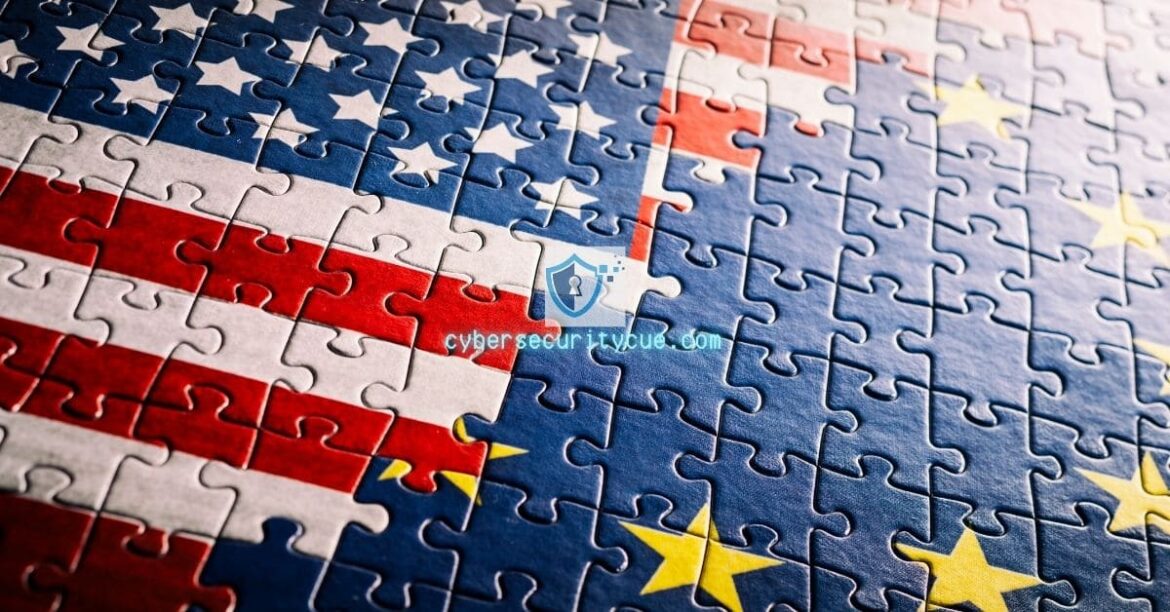Table of Contents
The EU-U.S. Data Privacy Framework (DPF): The Department of Commerce has introduced the EU-U.S. Data Privacy Framework (DPF), offering a new legal transfer mechanism for U.S. multinational employers to comply with GDPR’s data transfer requirements when handling EU personal data.
This framework replaces the previously invalidated EU-U.S. Privacy Shield and allows employers to self-certify with the Department of Commerce, streamlining cross-border data transfers. However, companies must consider certain factors while utilizing the DPF within their data transfer compliance model.
Key Takeaways:
- The EU-U.S. Data Privacy Framework (DPF) replaces the EU-U.S. Privacy Shield for legal data transfers between the EU and the United States.
- Employers can rely on DPF self-certification to avoid the complexities of the EU’s Standard Contractual Clauses (SCCs).
- Employers that were previously certified to the Privacy Shield are grandfathered into the DPF but must update their policies to ensure compliance.
The Department of Commerce has introduced the EU-U.S. Data Privacy Framework (DPF) as a new legal mechanism for U.S. multinational employers to facilitate the transfer of EU personal data. Replacing the EU-U.S. Privacy Shield, the DPF streamlines data transfers while ensuring compliance with GDPR’s requirements.
In this news item, we explore key considerations for employers leveraging the DPF for cross-border data transfers.
Efficiencies of the EU-U.S. Data Privacy Framework over Standard Contractual Clauses
Many multinational employers previously relied on Standard Contractual Clauses (SCCs) to transfer HR Data from the EU to the United States. However, the new SCCs introduced in June 2021 brought more complexities, including extensive data transfer risk assessments.
The DPF offers a less burdensome alternative, enabling companies to self-certify their compliance with DPF Principles issued by the Department of Commerce. This certification exempts them from the arduous requirements of SCCs, making data transfers smoother and more efficient.
Grandfathering for Privacy Shield Certified Employers
U.S. multinational employers who maintained their Privacy Shield certification can seamlessly transition to the DPF.
Although the framework is nearly identical to the Privacy Shield, companies need to update their policies by October 10, 2023. Additionally, they must refresh their independent dispute resolution mechanisms and recommence annual assessments to ensure compliance with the DPF.
Facilitating Data Transfers with Service Providers
For U.S.-based multinational employers using cloud service providers (CSPs) to handle HR Data, the DPF offers significant advantages over SCCs.
Employers can transfer HR Data directly to grandfathered U.S.-based vendors without detailed risk assessments. By confirming their vendors’ inclusion on the DPF-certified entities list, employers can streamline data transfers while avoiding resource-intensive compliance requirements.
Extending DPF for the United Kingdom and Switzerland
The Commerce Department announced an upcoming “UK Extension” to the DPF, providing a data bridge for transferring data from the United Kingdom.
Swiss-U.S. Data Privacy Framework will also take effect soon, allowing data transfers from Switzerland to the United States.
Employers should monitor the anticipated adequacy determinations to simplify cross-border data transfers further.
5. Potential Challenges and Backup Solutions
While the DPF simplifies data transfers, it may face legal challenges, as seen with previous data transfer mechanisms.
Max Schrems, known for challenging the Privacy Shield, expressed intentions to challenge the DPF’s adequacy. Employers might consider adopting a multi-level approach, utilizing DPF self-certification alongside SCCs or binding corporate rules as a precaution until legal challenges are resolved.
Conclusion
The EU-U.S. Data Privacy Framework presents a promising solution for U.S. multinational employers seeking simplified and compliant data transfers with the EU.
As employers transition from the Privacy Shield to the DPF, they must carefully update their policies and ensure compliance to take full advantage of this new framework.
Nonetheless, keeping an eye on potential legal challenges and adopting backup mechanisms can offer additional security and peace of mind during this transition.





